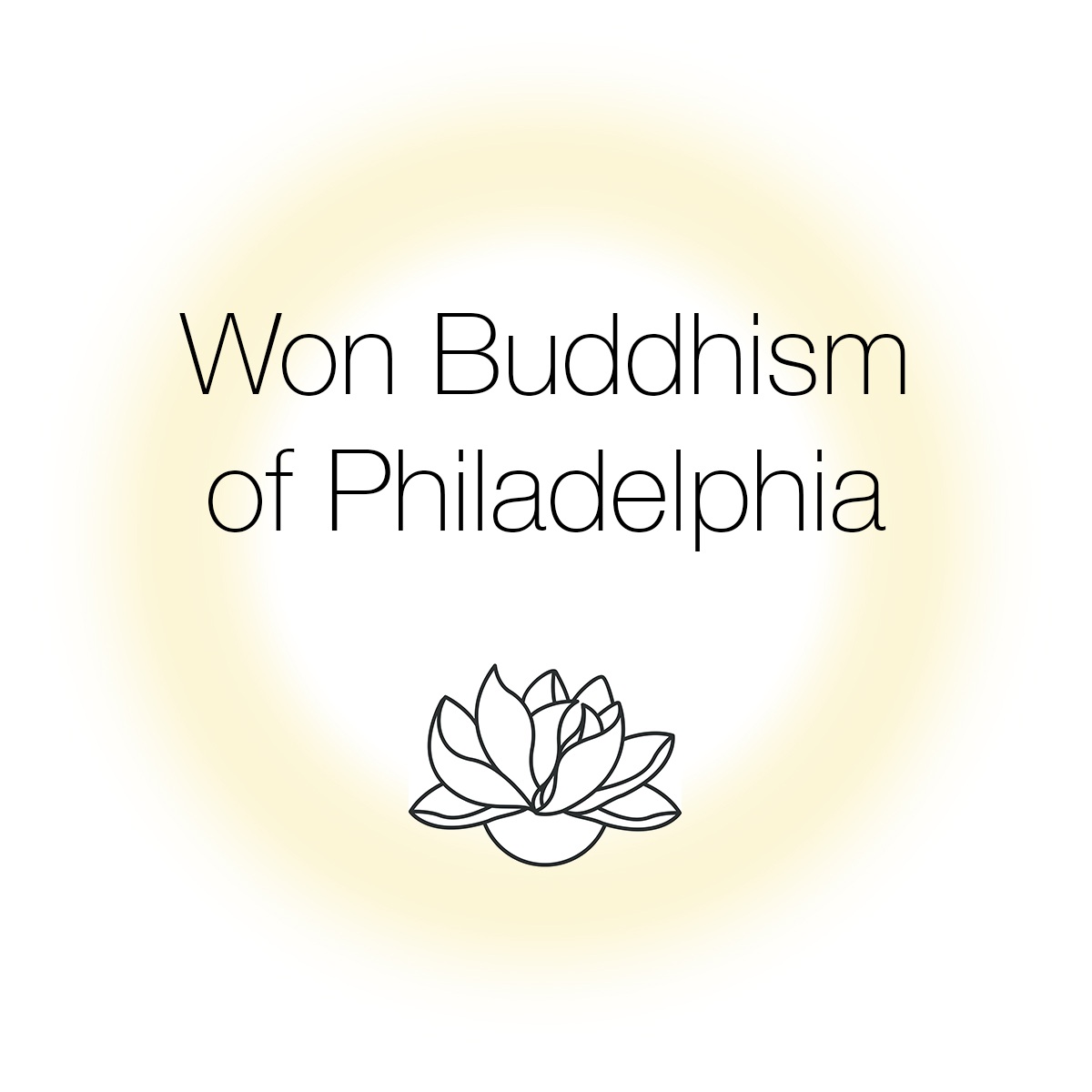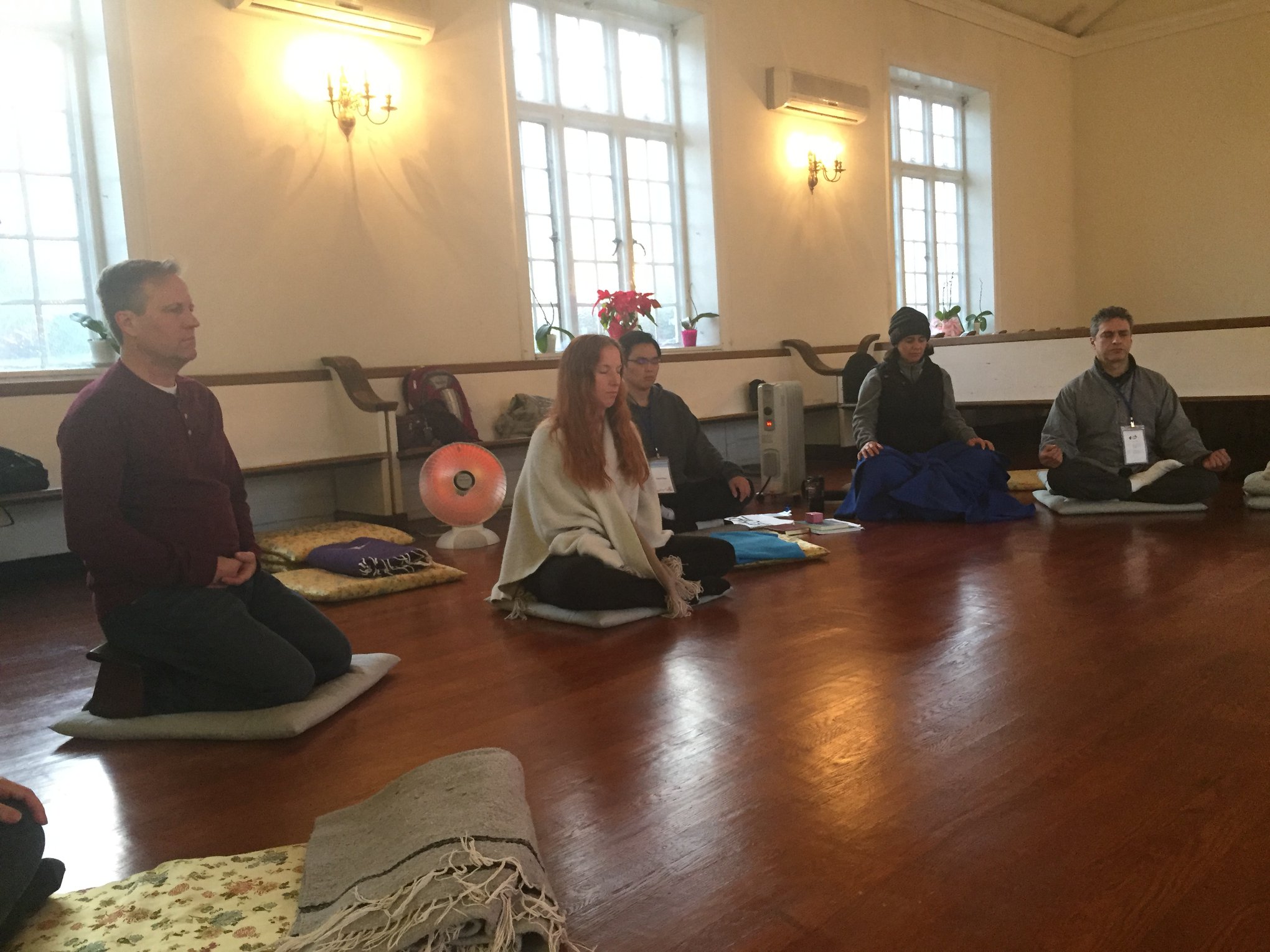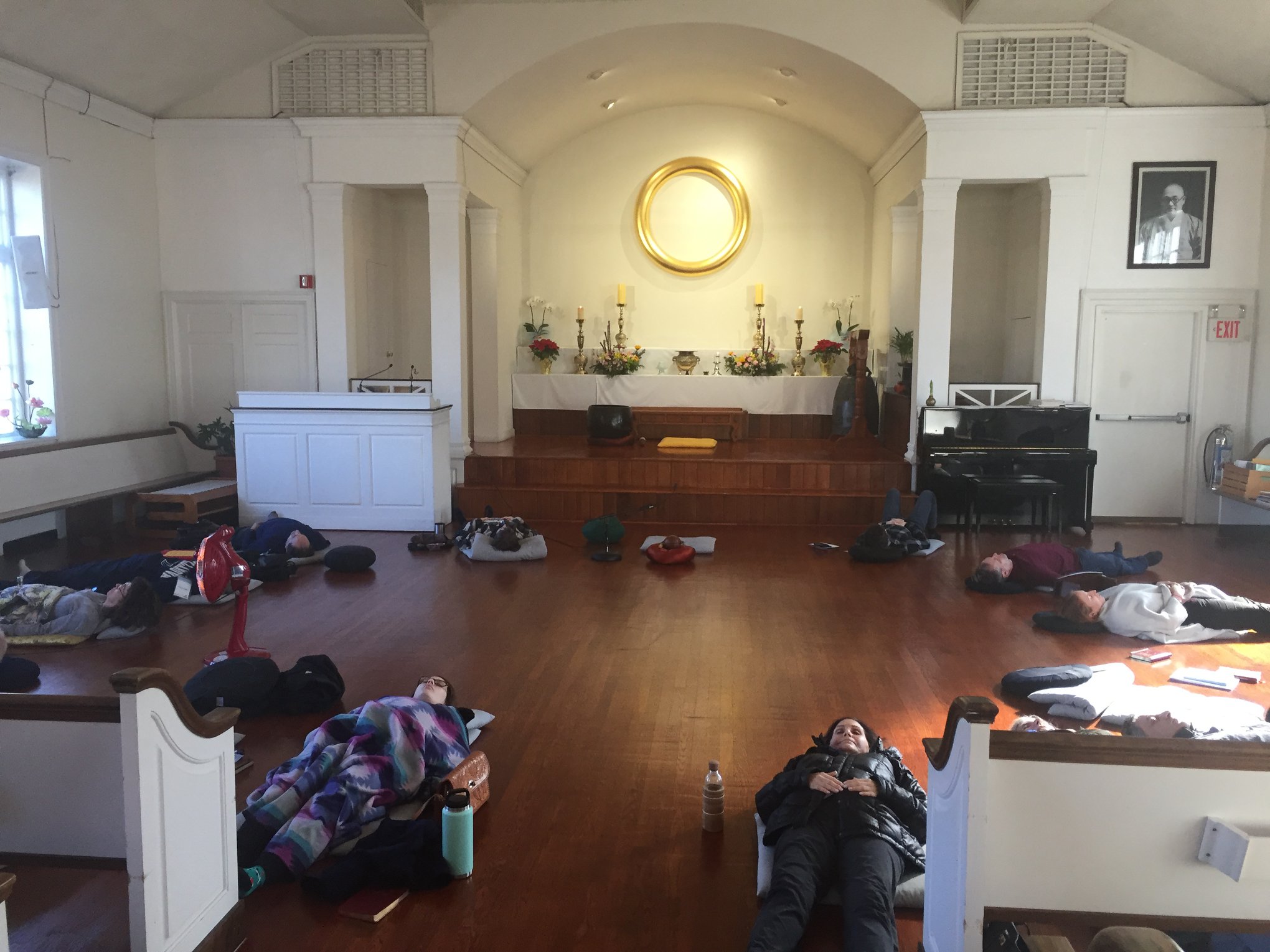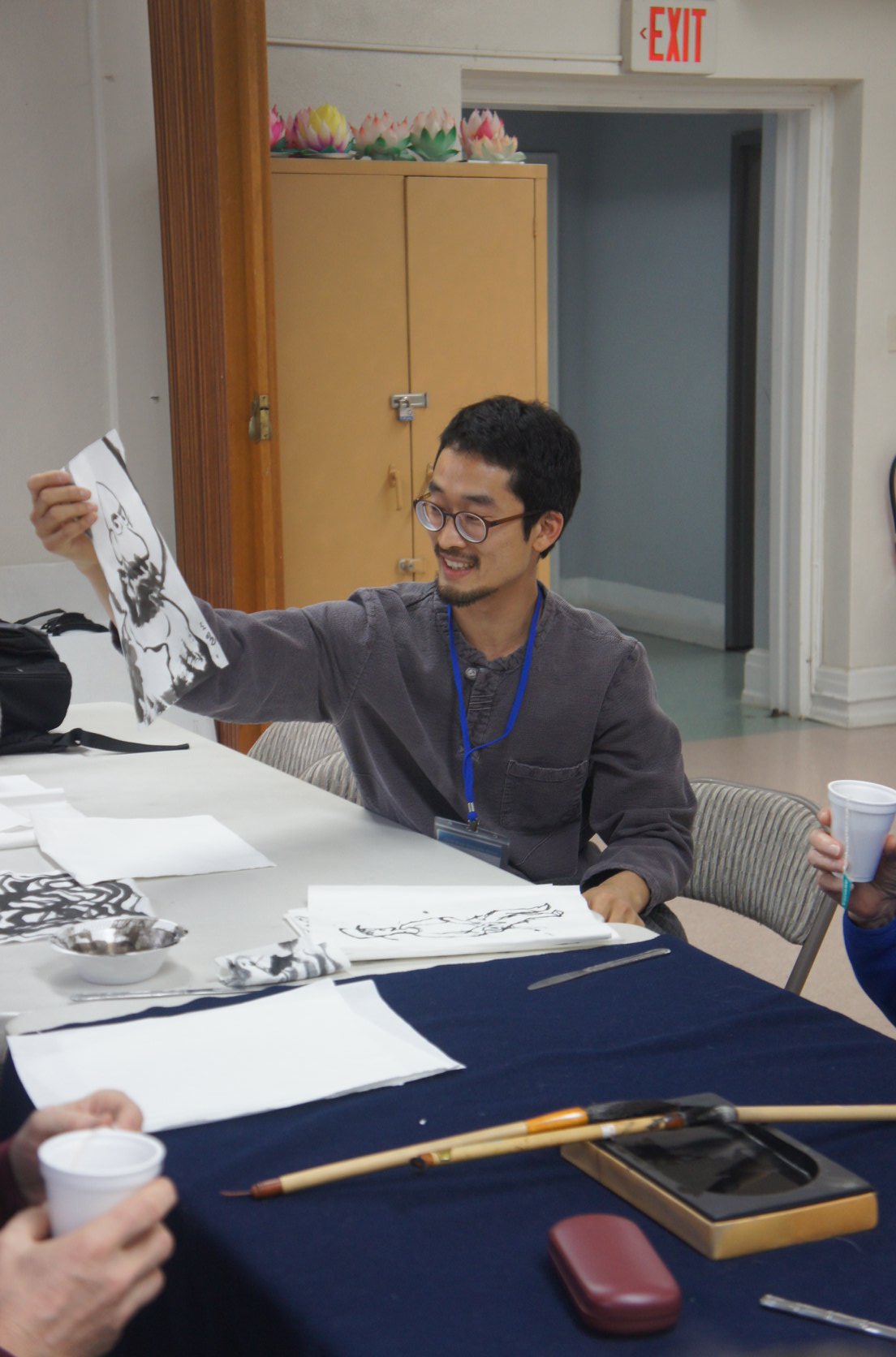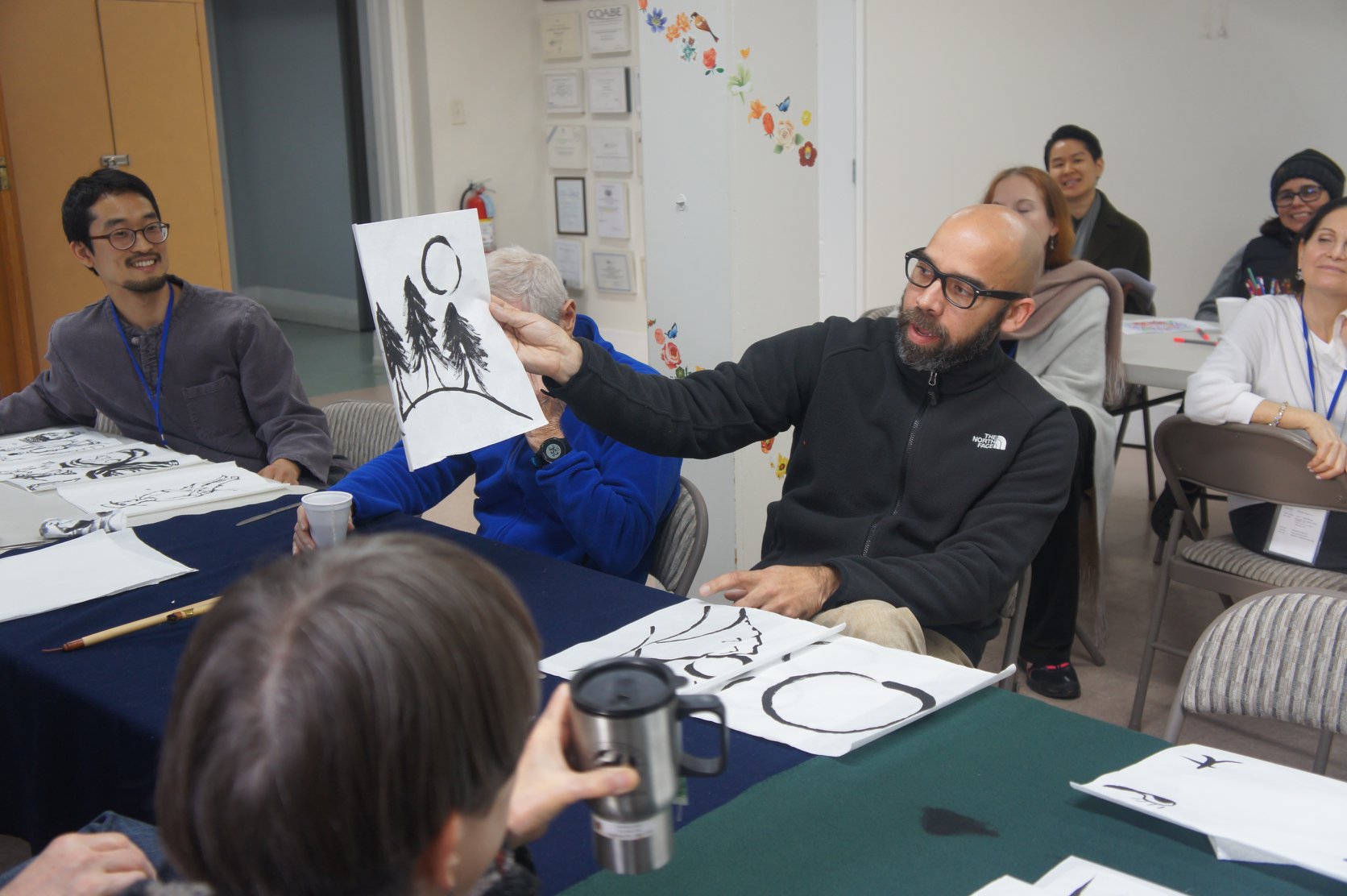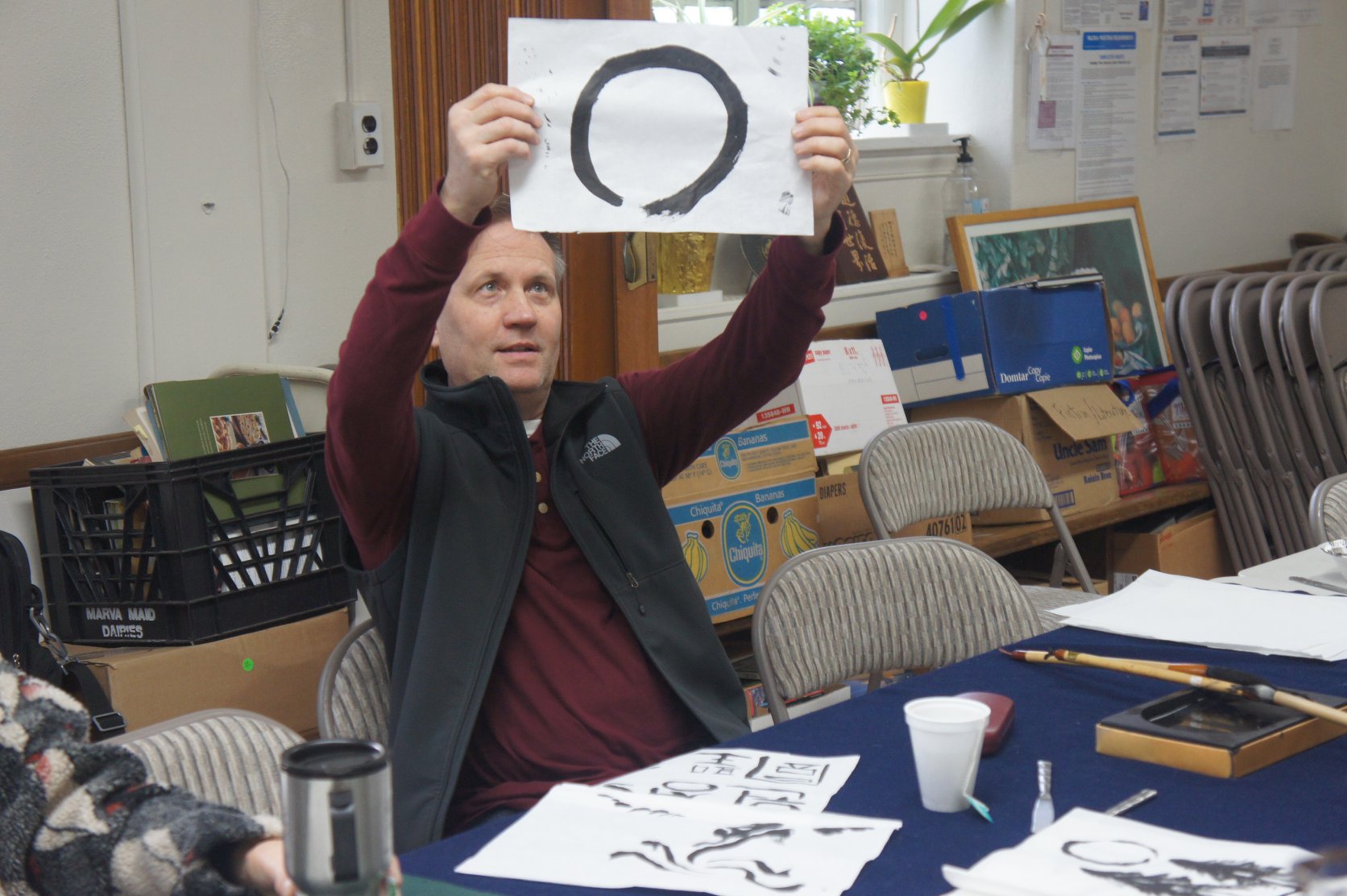Here are the 2 pages for your daily mindfulness diary based on Won Buddhist scriptures, just right click and save to your computer.
A Letter of Thanks from Us to You
Greetings,
We are really looking forward to the upcoming new year, 2019! When we take a moment to reflect on this year, we would like to say a big thank you to all of our Sangha members. Our temple community couldn’t exist without YOU.
From the beginning of this year, we have had many special celebrations: Great Enlightenment Day, Buddha’s Birthday, 9th Plant Sale & Spring Bazaar, Great Memorial Service, Dharma Authentication Day, Spiritual Thanksgiving Memorial service. As well as our regular services: Tuesday Meditation, Wednesday Mind-study, Friday Scripture study, Saturday Dharma service. Even our special One day retreat this past Saturday. You are a significant part of everything we’ve accomplished in 2018.We hope we will have a great year in 2019 and continue to grow and expand our minds and spirits. Whether you came to the temple frequently or not, you are all part of our Sangha Dharma family.
We wish you a happy and healthy New year full of gratitude, peace, and happiness!
_()_
Rev. Kim & Rev. Lee
Our Year End Retreat
We had a wonderful day this Saturday as we practiced various forms of meditation, including sitting, walking, laying down, painting and mindful eating.
We hope you will join us for a day-long retreat in 2019!
The Grace in This World
The Grace in This World
An article from Tricycle magazine
An interview with Venerable Chwasan, former head dharma master of the Won Buddhist Order
By Emma Varvaloucas, Photography by Jean Chung
Sotaesan was in the head dharma master’s room when a group curious about Won Buddhism came to pay a visit. They bowed and asked, “Where is your esteemed religion’s buddha enshrined?” The founding master said, “Our buddha has just gone out, so if you would like to see him, please wait a moment.” The group was puzzled. A little later, when it was lunchtime, a group of workers returned from the fields carrying their farm tools. The founding master pointed to them and said,“They are all the buddhas of our house.” The group was even more puzzled.
This story comes from one of the primary books of a Buddhist canon you’ve probably never heard of: that of Won Buddhism, a 100-year-old Korean Buddhist order that sprang from the individual enlightenment of a modern-day Siddhartha. This was Sotaesan [Chung-bin Park, 1891–1943], who is said to have reached enlightenment in 1916, at the age of 26 and after years of ascetic practice. It was only after his enlightenment that he read the Diamond Sutra, found that many aspects of his own insights aligned with those of the Buddha’s, and declared Shakyamuni to be his “original guide” and the “antecedent of my dharma.” Sotaesan went on to create Won Buddhism (Won means “circle”), which has variously been described as a reformed, renovated, or revitalized buddhadharma. Its purpose is to update Buddhist teachings to make them more relevant to contemporary society and more understandable to contemporary people.
It’s unclear whether Won Buddhism, whose following has been increasing worldwide, is really a new tradition of Buddhism or an entirely new religion. Won Buddhists describe their tradition in both ways, and scholars seem equally undecided about the matter. Certainly, Won Buddhism contains many elements that would be familiar to Mahayana Buddhists, but it also includes core teachings that would not be found in any other Buddhist scripture. Won Buddhism puts heavy emphasis on the integration of spiritual practice into daily life. Unlike other Buddhist traditions, Won does not place a high value on lengthy retreat time. Rather, sustained engagement with the external world is paramount: Won Buddhists are known for their interfaith work as well as for their commitment to social issues. This is not to say that Won focuses on the macro to the exclusion of the micro. Their texts include detailed directives on propriety—from shaking hands to eating to hosting guests—and on all parts of a daily routine.
There were a lot of formalities and unnecessary, superstitious rituals. He wanted to get rid of those and to make the buddha-dharma very practical and realistic.
This emphasis on the average person, daily life, and pragmatism especially may help clarify the story that heads our interview. It was told to me on a sunny day last September by Reverend Dosung Yoo, the retreat director of the Won Dharma Center in Claverack, New York, when I visited on the occasion of Won’s centennial celebration. It was here, in the modern minimalist setting of the center, that I spoke with Venerable Chwasan, the fourth head dharma master of the order. There is no dharma transmission in Won Buddhism; its leaders are elected by a council composed of lay ministers and senior ministers, who are also elected. Ven. Chwasan retired in 2006 after nine years of holding the position. He is now Head Dharma Master Emeritus and lives in Iksan, South Korea. Rev. Yoo served as our translator.
–Emma Varvaloucas, Managing Editor
What sort of “reformations and renovations” did Sotaesan apply to the Buddha’s teachings? In the days when Sotaesan attained great enlightenment, Korean society was dominated by confused ideology. One of the characteristics of this confusion, for example, was the discrimination between men and women. Our founding master, very boldly for that time, abolished that discrimination. Also, especially in Korean Buddhism, different schools have their own emphasis and their own way of practice—a chanting school or a meditation school, for instance. Sotaesan wanted to gather that together to make a more balanced and complete practice. There were also a lot of formalities and unnecessary, superstitious rituals. He wanted to get rid of those and to make the buddhadharma very practical and realistic.
You mentioned “confused ideology.” Religious leaders don’t exist in a vacuum—they are always reacting to the culture of their time. Certainly Shakyamuni Buddha was reacting to the culture of his time. Could you talk a little bit about the culture that Sotaesan was reacting to? The founding motto of Won Buddhism—“As material civilization develops, cultivate spiritual civilization accordingly”—started from our founding master observing not just Korea but the whole world as technological and scientific development was advancing exponentially. Consequently, we modern people have lost our original nature, and have become completely enslaved by material things. Our mind is no longer the master of itself; instead, external things are dominating and directing our life.
Sotaesan thought this was a very sorry situation and wanted to emphasize what should be a priority and what should be secondary. He said, “Priority is our mind and the spirit. What comes next is the material civilization.”
I would like to ask about that kind of mind that is enslaved by dazzling external materials—do you also feel here in America as though you have this mind?
Yes. [Laughs.] I’m here to interview you for a Buddhist magazine, and look at me—I have my laptop, my phone, my recorder. I’m surrounded by so many electronic things that I would be upset to lose. So yes, we feel this way too. Material in and of itself is not bad. Feeble, weak mind is the problem; it’s the source of all our suffering.
The basic way to solve this problem in our contemporary society is to brighten and empower the mind. Sotaesan used the analogy of a knife. A knife is neither a wholesome nor an unwholesome thing on its own. When a knife is used by a thief, it’s a dangerous weapon. But when a knife is used by a great chef, it’s a tool that transforms ingredients into wonderful food. So everything completely depends on a person’s mind.
To intelligently utilize our material civilization is the direction of our Won Buddhist practice. It starts from working with our mind, making our mind calm and peaceful and quieting it in order to hone our innate wisdom. His Holiness really emphasized practice, not just a daily practice or going for a certain period of time to some retreat center, but to become wholly devoted to training our mind so that our life itself becomes the grace in this world.
Everyone is Welcome in our Temple!
Help support our temple and meditation programs!
Dear Dharma Friends,
We hope you had a wonderful Thanksgiving yesterday, we would like to express our gratitude to you for your beautiful smile and sincere practice.
This holiday season, please join us for our one-day retreat, spiritual Thanksgiving and other special services this December.
We hope that you value the role of our temple and its meditation programs in your life, if so, please consider sending a donation. This Temple is self-supporting through your donations alone and has been struggling this year.
Your generous donation allows us to maintain the temple building so that you have a comfortable, safe and calm environment in which to practice.
It allows us to continue to offer dharma teachings and meditation services and to enable our ministers to devote their lives to enriching our community and world through peaceful and compassionate practice.
Thank you greatly!
Our Temple is a registered charity and all donors are tax deductible and you will be sent a tax receipt letter.
With our sincere gratitude,
Palms together,
Rev. Kim & Rev. Lee
Winter Won Moving Meditation Retreat
December 29th, 2017 ~ January 1st, 2018
Won Dharma Center, NY
Creating a Healthier Mind and Body
Moving Meditation is the special practice of combining physical and mental movement harmoniously, without strain or pain. When the body is changed through Moving Meditation, there will be a change in one’s energy, and physiological harmony will take place. By enhancing spiritual relaxation and inner restoration, one can recover one’s original nature. In contrast to exercises that require tensed muscles, Moving Meditation helps us not only to relax joints, muscles, organs, and nerves but also helps us to find mental relaxation and emancipation from attachments. When our body is overly tensed for long periods, it may become prone to disease. Unlike exercise that strengthens our body, Moving Meditation helps us to reach equanimity of mind through the wholesome balance and harmony of body, energy, and breath. Rev. Song’s Moving Meditation programs include: Yin Yang Mudra, Warm Heart Supple Body, ShipSang Meditation, and Sŏn Yoga. The principles of Tai Chi, Qigong, and yoga are synthesized in these practices.
To register and find more information on the retreat, click here.
Donate for free with Amazon Smile
When you Start with a Smile, Amazon.com donates 0.5% of the purchase price to Won Buddhism of Philadelphia Inc.
Bookmark the link http://smile.amazon.com/ch/23-2443526 and support us every time you shop.
Interfaith Street Art in Philadelphia, PA
It was good time with people who knows Oneness of the all religious truth.
Won Buddhism quoted "All religions in the world are of one identical origin and one identical principle, All living beings in the world are one family in one Earth." From Master Chungsan.
Thanks Dohoon, Inkyung, Eunsoo, Minsoo, John, Thao, Desi, and Brian who made the time great.
Guest Speaker Alison Cornish
This Saturday's Dharma Talk will be given by a special visitor from the Interfaith Center of Pennsylvania, Rev. Alison Cornish.
"The Reverend Alison Cornish is a Unitarian Universalist minister. She currently serves as Executive Director of Pennsylvania Interfaith Power & Light (PA IPL) a statewide organization that supports congregations and individuals to bring their moral voice to the issue of climate change. Alison has a background in parish ministry, nonprofit management, multifaith work, and advocacy for the marginalized.
A graduate of Wellesley College, the University of York (UK), and Andover Newton Theological School, Alison began her work life in historic preservation, working for municipalities and nonprofit organizations in New England and New York. After attending seminary, Alison served two Unitarian Universalist congregations on Long Island as minister, as well as working for the Long Island Multifaith Forum. Prior to accepting the position with PA IPL, Alison worked as Senior Director of Programs for Partners for Sacred Places, a nonprofit organization based in Philadelphia working with congregations of all denominations, their historic buildings, community ministries and development of resources."
Students Visit to Learn About Buddhism
We had a wonderful visit from Hill Top Prep School students on Wednesday, to learn about Buddhism as part of their Eastern History.
We began with a introduction talk, sitting and moving meditation demonstration, Q & A conversation. We then enjoyed lunch together and made paper lotus flowers as an art project. We found the students to be curious, intelligent and creative... and such charming young people.
Our future lies in the hands of youth and we must give them opportunity to learn different perspectives, which can provide a holistic understanding of humanity.
Young People's Retreat
Young People's retreat is coming up this summer at Won Dharma Center, NY.
Feel free to register! There is even a scholarship for young people because money should not be the matter for making a decision. No one should be turned away for lack of means.
Let ministers know if you have any concerns.
You, young people are the future of this society and world!
More information and sign up here:
http://nyc.wonbuddhism.org/programs/events-retreats/228-2017-summer-young-people-s-retreat.html
Peaceful Protest in South Korea
We thought you might be interested in this article on the Buddhist Channel about Won Buddhist Monk's meditation protest against militarizing the sacred place of Sonju, South Korea.
You can read the full article here:
http://www.buddhistchannel.tv/index.php…
"Buddhist monks in this hillside county 135 miles south of Seoul have spent the past 59 days in a nonstop meditation protest along a road leading to where the U.S. military recently positioned an anti-ballistic missile system designed to counter the threat of incoming warheads from North Korea."
"There are many monasteries and temples around here and the holy site is nearby,” Mr. Won told The Times, asserting that the actual road leading up to the course was previously used year round by monks on pilgrimages to honor Won Buddhism’s founders, who lived in the area during the early- and mid-1900s."
Thank you for a Fantastic Fundraiser!
Through the 8th Plant and Yard sale, this year we raised fund for the temple and for supporting children's education in Swaziland, Africa $2,127.96 so far.
Because of your help, involving and volunteering.
The plants were kindly donated by Primex Garden Center.
Our yard sale items were generously donated by our lay-members and neighbours.
Thank you very much!
